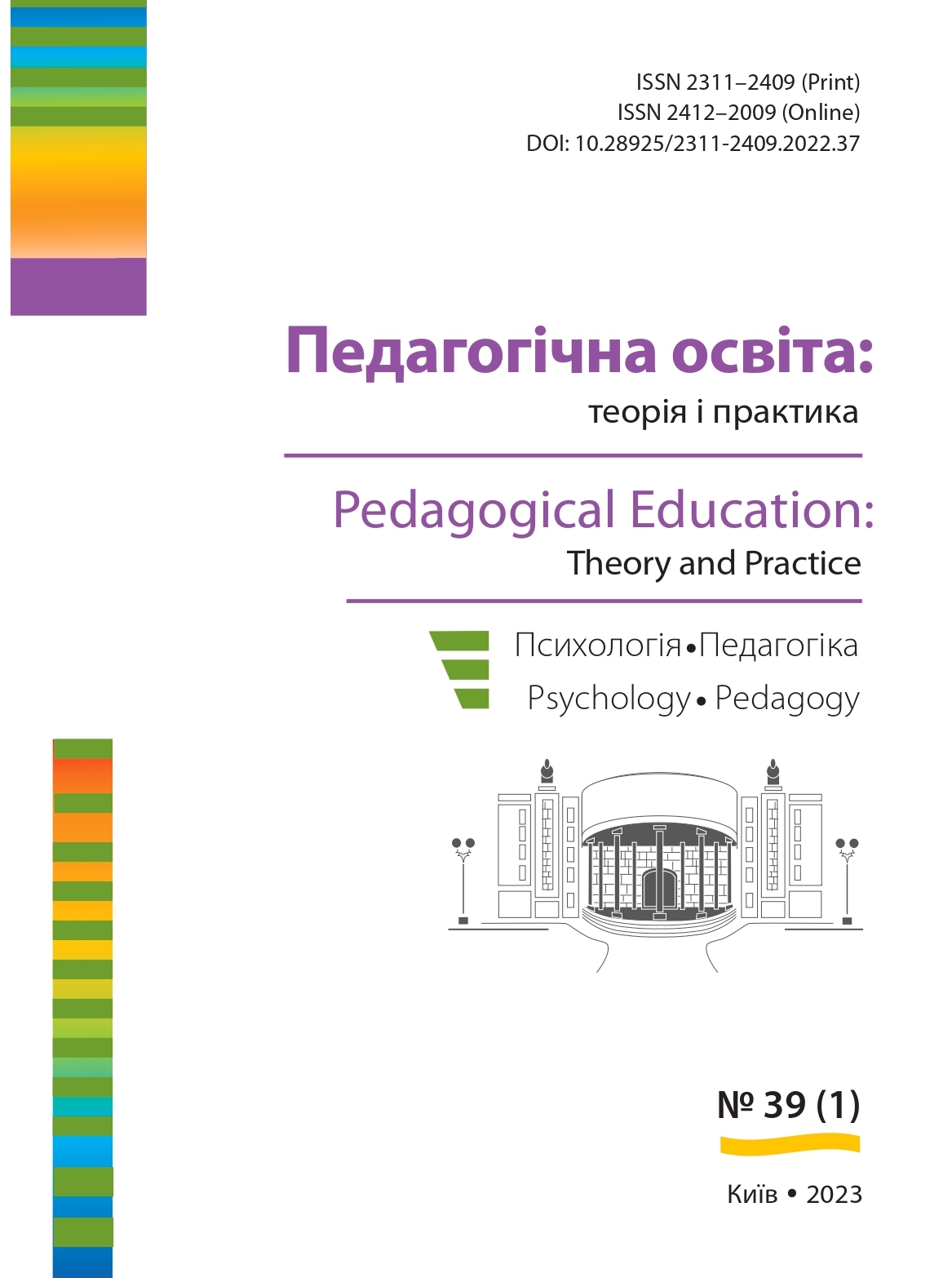Gender stereotypes: essence, types and influence on self-realization of women of different ages
DOI:
https://doi.org/10.28925/2311-2409.2023.3913Abstract
The article provides a detailed examination of the concept and essence of gender stereotypes, their
diversity. The specific features of the impact of gender stereotypes on women’s self-realization in early and middle
adulthood were analyzed. It has been found that gender stereotypes are fixed beliefs (ideas) about what women/
men are like and should be like, which shape their behavior in society.
The problem of the gender stereotypes is considered by the authors as one of the most crucial and relevant in modern
society due to a predominantly negative impact on women’s self-realization, which is reflected in complications
in career advancement of women, existence of gender-based occupational segregation in the labor market,
discrimination as well as conformism, personal stagnation, rigidity, devaluation of personality.
The study has demonstrated that most of the women recognize the existence of gender stereotypes in modern
society and aware of their impact on self-realization. Masculinity-Femininity stereotypes are predominant among
the other types of gender stereotypes in both young and middle-aged women.
The empirical examination has revealed that stereotypical beliefs are inherent in married women to a greater
extent compared to single women. A comparative analysis has shown that women in early adulthood are less
likely to manifest stereotypical beliefs than women in middle adulthood. Moreover, it was found that women
in early adulthood have a higher level of striving for self-actualization compared to middle-aged women.
Respondents have low scores on the “Spontaneity”, “Autosympathy”, and “Human Nature” scales, and high scores
on the “Values” and “Creativity” scales. The following tendency can be observed: the women with a high level
of stereotyping have lower index of self-realization than the women with non-stereotypical views.
Despite numerous scientific works of foreign and national scientists about gender stereotypes, the problem
of the impact of gender stereotypes on women’s self-realization has not been studied in depth by Ukrainian
scientists. This highlights the relevance and novelty of the scientific work.
Downloads
References
Дзюба Т.М., Коваленко О.Г. Психологія дорослості з основами геронтопсихології: навч. посіб.
для студентів ВНЗ. 2013. 172 с.
Дубиніна М. І. Гендерні особливості професійної самореалізації жінок // Теорія і практика сучасної психології. 2018. № 3. С. 24–27.
Коханова О. П., Бурячок Є. Р. Вплив гендерних стереотипів на самореалізацію жінок // Modern
research in world science. 2023. С. 859–865.
Ткалич М. Г. Психологія гендерної взаємодії персоналу організації: дис. д-ра психол. наук: 19.00.10.
Київ, 2016. 500 с.
Does National Context Matter When Women Surpass Their Partner in Status? / M. Vink et al. // Front
iers in Psychology. 2022. Vol. 12, P. 1–13, doi:10.3389/fpsyg.2021.670439. (eng).
Eagly A. H., Koenig A. M. The Vicious Cycle Linking Stereotypes and Social Roles // Current Directions
in Psychological Science. 2021. Vol. 30, no. 4. P. 343–350, doi:10.1177/09637214211013775. (eng).
Heilman M. E. Description and Prescription: How Gender Stereotypes Prevent Women’s Ascent Up
the Organizational Ladder // Journal of Social Issues. 2001. Vol. 57, no. 4. P. 657–674, doi:10.1111/0022-
00234. (eng).
Koenig A. M. Comparing Prescriptive and Descriptive Gender Stereotypes About Children, Adults,
and the Elderly // Frontiers in Psychology. 2018. Vol. 9., P. 1–13, doi:10.3389/fpsyg.2018.01086. (eng).
Li J., Liu Y., Song J. The Relationship Between Gender Self-Stereotyping and Life Satisfaction:
The Mediation Role of Relational Self-Esteem and Personal Self-Esteem // Frontiers in Psychology. 2022.
Vol. 12, P. 1–10 doi:10.3389/fpsyg.2021.769459. (eng).
Lippmann W. Public opinion. New York: Macmillan, 1927. 427 p.
REFERENCES
Dziuba T.M., Kovalenko O.H. Psykholohiia doroslosti z osnovamy herontopsykholohii: navch. posib. dlia
studentiv VNZ. 2013. 172 s. (in Ukrainian).
Dubynina M. I. Henderni osoblyvosti profesiinoi samorealizatsii zhinok // Teoriia i praktyka suchasnoi
psykholohii. 2018. № 3. S. 24–27. (in Ukrainian).
Kokhanova O. P., Buriachok Ye. R. Vplyv hendernykh stereotypiv na samorealizatsiiu zhinok // Modern
research in world science. 2023 r. S. 859–865. (in Ukrainian).
Tkalych M. H. Psykholohiia hendernoi vzaiemodii personalu orhanizatsii: dys. d-ra psykhol. nauk :
00.10. Kyiv, 2016. 500 s. (in Ukrainian).
Does National Context Matter When Women Surpass Their Partner in Status? // M. Vink et al. Frontiers
in Psychology. 2022. Vol. 12, P. 1–13, doi:10.3389/fpsyg.2021.670439. (in English).
Eagly A. H., Koenig A. M. The Vicious Cycle Linking Stereotypes and Social Roles // Current Directions
in Psychological Science. 2021. Vol. 30, no. 4. P. 343–350, doi:10.1177/09637214211013775. (in English).
Heilman M. E. Description and Prescription: How Gender Stereotypes Prevent Womens Ascent Up
the Organizational Ladder // Journal of Social Issues. 2001. Vol. 57, no. 4. P. 657–674, doi:10.1111/0022-
00234. (in English).
Koenig A. M. Comparing Prescriptive and Descriptive Gender Stereotypes About Children, Adults, and
the Elderly // Frontiers in Psychology. 2018. Vol. 9., P. 1–13, doi:10.3389/fpsyg.2018.01086. (in English).
Li J., Liu Y., Song J. The Relationship Between Gender Self-Stereotyping and Life Satisfaction: The Mediation
Role of Relational Self-Esteem and Personal Self-Esteem // Frontiers in Psychology. 2022. Vol. 12, P. 1–10
doi:10.3389/fpsyg.2021.769459. (in English).
Lippmann W. Public opinion. New York : Macmillan, 1927. 427 p. (in English).

